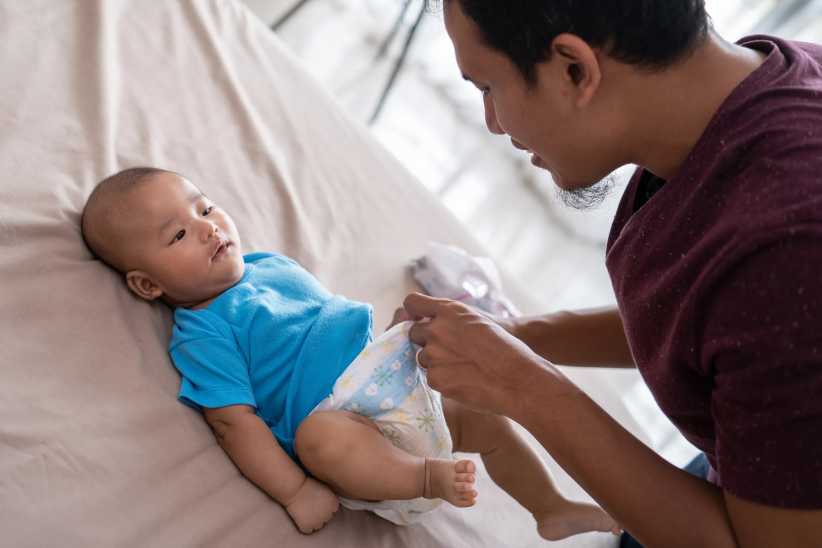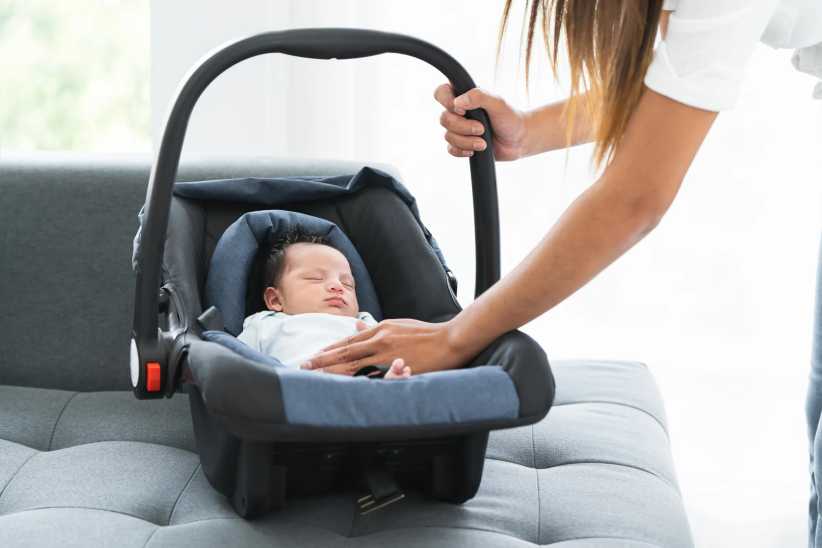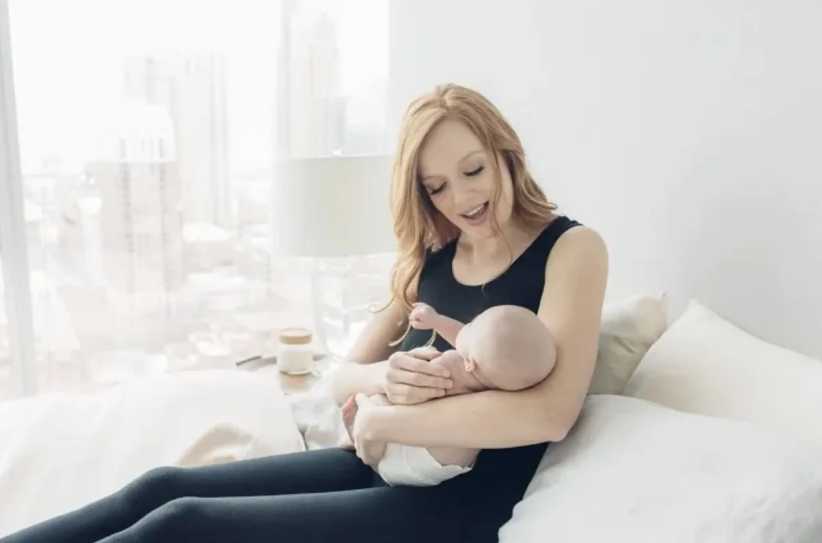 Not long ago, I was speaking with a friend about her experience right after her babies were born. She confided in me that she suffered from postpartum depression and started to tell me her story. I asked her if she would be willing to share what she endured so that other women can learn from her struggle. Here is my brave friend’s story.
Not long ago, I was speaking with a friend about her experience right after her babies were born. She confided in me that she suffered from postpartum depression and started to tell me her story. I asked her if she would be willing to share what she endured so that other women can learn from her struggle. Here is my brave friend’s story.
Please describe your postpartum experience.
The postpartum experience for me was shocking. I really had no idea what was wrong, and it didn’t occur to me for several weeks that it could actually be postpartum depression. I was walking around in a perpetual fog and funk. I was, of course, tired and overwhelmed after giving birth to twins, but what stood out was that I couldn’t seem to shake the “gloomies” and had a very hard time bonding with my babies. To say I was “not myself” was an understatement. People would describe me as a girl who was always “up” and looked at things in a “glass-half-full” kind of way. I could barely pull myself out of bed in the morning, and I dreaded the rigors that would lie ahead for me each day. I took absolutely no joy in being a new mother. I was so convinced that I had made a huge mistake in having children that if my doctor had come to me and assured me that I was a good person, that he knew I meant well but clearly I was not cut out to be a mother, I think I would have let him take my kids away. It’s very hard for me to look back on those first couple of months, since I feel guilty and ashamed about how I felt. The person that I was at the time was a complete stranger to me. As bad as I felt, I am thankful for the fact that never once did I think about harming myself or harming the children; I just wanted to run away.
When did you recognize that you were experiencing postpartum depression?
I felt the “doom and gloom” from day one. I had experienced HELLP syndrome when delivering the babies, which caused my blood pressure to skyrocket and kept me in intensive care for a few days. I had to see my OB a few days after coming home from the hospital and mentioned that I was feeling bad—feeling like I wasn’t myself and I couldn’t “hold it together.” But he wrote it off as being overwhelmed and the stress of the HELLP and the delivery. Help did arrive on the day I took the girls for their eight-week checkup at the pediatrician’s office. We saw the physician’s assistant, Dr. Gardiner, for the checkup. I immediately liked her; she had such a calm and reassuring way about her. She took one look at me and asked me very gently how I was feeling. When I told her how sad and lost I felt (my husband was with me at the time and was obviously so worried about me), she immediately recognized the symptoms and was at least able to give me a reason and a name for what I was feeling. While it didn’t help my depression, it at least allowed me to realize that what was happening wasn’t my fault and I wasn’t going crazy!
What measures did you take to help relieve the situation?
Dr. Gardiner discussed medication with me and was very reassuring that it would help and I wouldn’t have to take it forever. I have always had a phobia about taking medication (I don’t even like to take Advil!), so I was reluctant. I kept thinking the next day would be better, that I would “pull myself out of the fog” and get back to being my old, upbeat self. Somehow just knowing that it was a chemical issue and not me losing my mind really helped. I knew that my darkest times were when I was alone, so I began to reach out to every friend, family member, neighbor, and acquaintance to keep me occupied. The upside was that they could help me with the babies. I didn’t wind up taking any medication but it’s a decision that, quite honestly, I regret. There was no reason I had to suffer the way I did when medication could have helped. I look back on it now and realize it was such a shame that I wasted precious months with the girls, crying and feeling worthless and like a terrible mother/person when, if I had at least tried the medication, I could have enjoyed being on maternity leave while loving and appreciating my new family.
What worked for you?
The only thing that really worked was time and going back to work. It seems strange that going back to work helped cure me because the thought of returning to my job while I was home made me unbearably depressed each day. I felt so awful and knew that each day was slipping away. I became obsessed with the fact that each day I felt sad was one less happy day I was going to have with the kids. It became like this doomsday countdown in my mind knowing that each day my maternity leave was closer to being over. But somehow when I was forced to get up in the morning, take a shower, put on makeup and nice clothes and get back to the reality I knew prior to the babies, I felt rejuvenated. Having a little time to myself made me whole again and it allowed me to appreciate every waking moment I had with the girls when I was home. I became so much more patient and loving. I finally felt like how a new mother was supposed to feel.
Did you get the sense that you could discuss what you were feeling with other people (your partner, friends, etc.)?
I felt like I could talk about it with my husband and my best friend and sisters, but no one could understand what I was going through. They would try everything from sympathizing to “tough love” but no one really got it. I was so relieved when Dr. Gardiner was able to recognize my symptoms. For the first time, I felt like I wasn’t going crazy and someone really knew (at least from a clinical point of view) what I was going through. A couple of years later, when I read Brooke Shields’s book, Down Came the Rain, I cried (with sadness and relief) through every chapter. It brought back all the raw and painful emotions I felt each day and it made me so happy that someone with fame was able to share such a personal story that was bound to help thousands of women. My only wish is that it had come out before I had my kids. Since she had taken the medication, I think it would have given me the courage to do the same.
Do you have any advice for other mothers that may be experiencing postpartum depression?
My advice would be to try to recognize your symptoms early and to talk about it with your doctor. My biggest mistake was thinking that I could will away the sadness, that mind over matter would help me to persevere. Instead, the hormones won and I wasted four months feeling like there was a rain cloud above my head that followed me everywhere. It’s also important to take time for yourself. Don’t be afraid to take people up on their offers to help and get out and do something slightly indulgent like meet a friend for lunch or get your nails done. Don’t waste precious free time doing mindless errands like food shopping and Duane Reade runs; let others help you with those things. Most of all, I would say that you have to remember you’re powerless against this force of nature. It’s not your fault and you just can’t help it. It was such a waste of energy for me to carry the shame and the sadness that I did. Be very vocal with your doctor; let him or her help you, whether it’s taking medication or connecting you with a support group. Just putting a name to the issue will help the healing process.
Facts About PPD
-Up to 1 in 7 women experience PPD (approximately 13% of postpartum women)
-About half of women who are diagnosed with PPD may have begun experiencing symptoms during pregnancy—so it’s important to seek help early!
-Postpartum depression can occur at any time after birth, but it most commonly starts 1-3 weeks after delivery
What Causes PPD?
It’s impossible to pinpoint what may be the cause of one’s postpartum depression. There are several factors that can contribute to PPD:
–Infant temperament and maternal anxiety and depressed mood in the early postpartum period
-Isolation
-Unmet expectations of what motherhood would be like, what the baby would be like
-Lack of support
-Overcoming a difficult birth (also see Birth Trauma)
-Ambiguous feelings about the pregnancy
-Loss of freedom and personal identity
-Body image issues, loss of pre-pregnancy body
-History of depression or mental illness pre-pregnancy or family history of depression or mental illness
-Stress from marital problems or financial problems
What Are The Signs Of PPD?
It’s normal to have a change in mood and desires postpartum, especially considering the huge hormonal shift your body experiences after birth and as a result of sleep deprivation. However, if you are experiencing any of these symptoms of depression listed below, as outlined by the Office of Women’s Health, for more than two weeks, it’s best to consult with your care provider. Your doctor can figure out if your symptoms are caused by depression or something else.
-Feeling restless or moody
-Feeling sad, hopeless, and overwhelmed
-Crying a lot
-Having no energy or motivation
-Eating too little or too much
-Sleeping too little or too much
-Having trouble focusing or making decisions
-Having memory problems
-Feeling worthless and guilty
-Losing interest or pleasure in activities you used to enjoy
-Withdrawing from friends and family
-Headaches, aches and pains, or stomach problems that won’t go away
Getting Help
Even the idea of reaching out for help may seem overwhelming. If needed, start small. Your partner can make a phone call or two to get the ball rolling for additional support.
-Seek professional help
-LifeNet Call Center, Listening Service for people in crisis, including substance abuse: 1-800-543-3638
-Get support from partner, family, and friends
-Sleep! Sleep deprivation can really wear on the mind and body.
-Find a new mother support group in your area. (PYC often offers two groups per season.)
-Try to get some time away from your baby, even if it’s just for a walk around the block.
-Consider placental arts. It is believed that ingesting the placenta postpartum helps balance the estrogen, which drops significantly after birth. This can be done by having a professional dehydrate the placenta and encapsulate it. I had this done with my placenta and took the capsules for about two months postpartum. This also helps with low iron levels, which is not uncommon postpartum.
-Ask your doctor about supplements
Debra Flashenberg is the founder of the Prenatal Yoga Center. After spending much of her life in musical theater, she was introduced to yoga in 1997 and has since become a certified doula, Lamaze coach, midwife, and certified vinyasa yoga instructor. She is continuously in awe of the beauty and brilliance of birth and is the proud mother of baby boy Shay.












